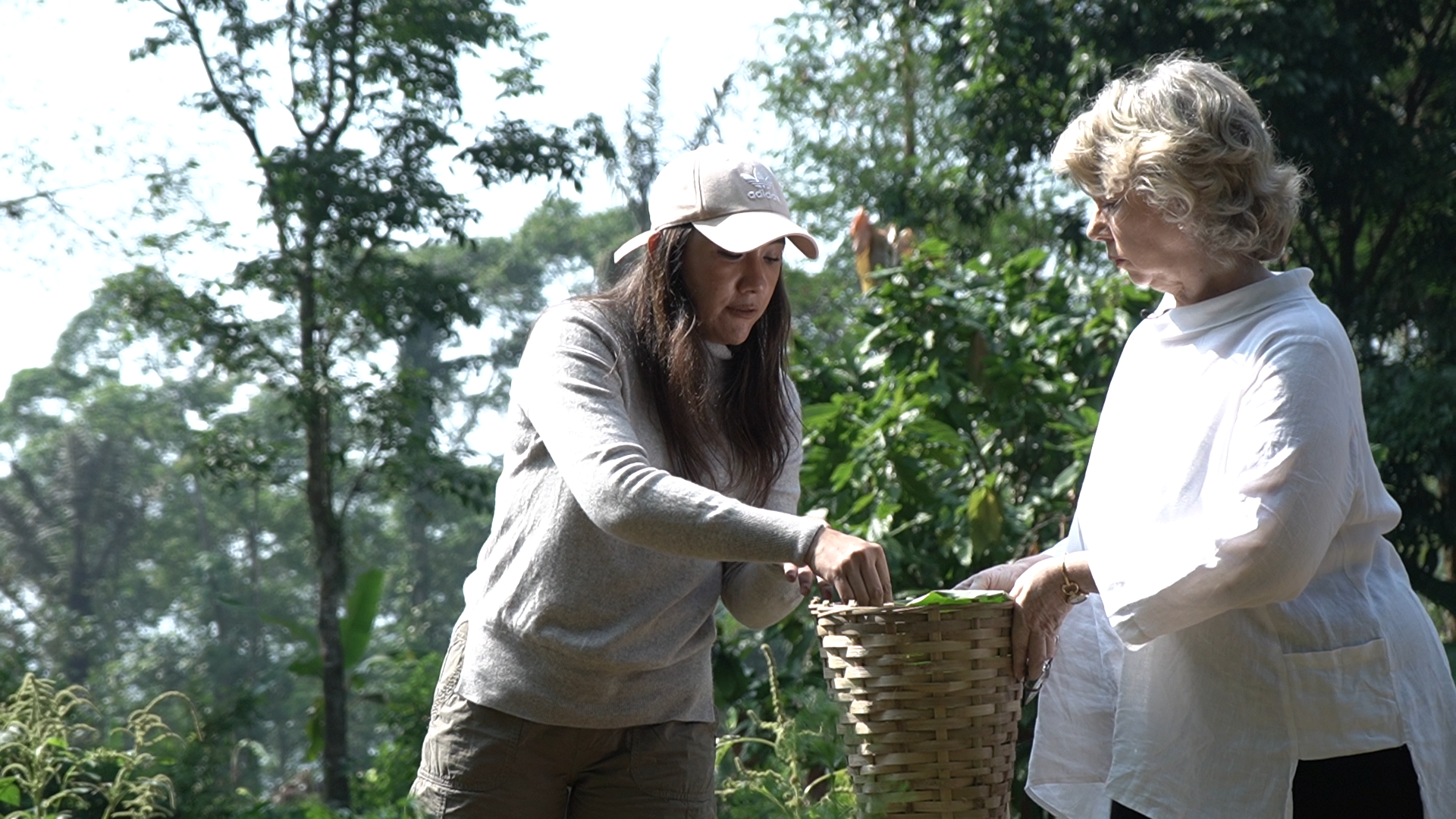When I first began talking to expat spouses here in Jakarta, one thing became clear: the loneliness they feel is often hidden behind brave smiles and a facade of strength. The transition to life in a new country, while exciting, brings with it a creeping sense of isolation that many are reluctant to admit. Beneath the surface, there’s a shared experience of starting over, building friendships that are inevitably temporary, and grappling with the emotional exhaustion that comes with the constant cycle of change.
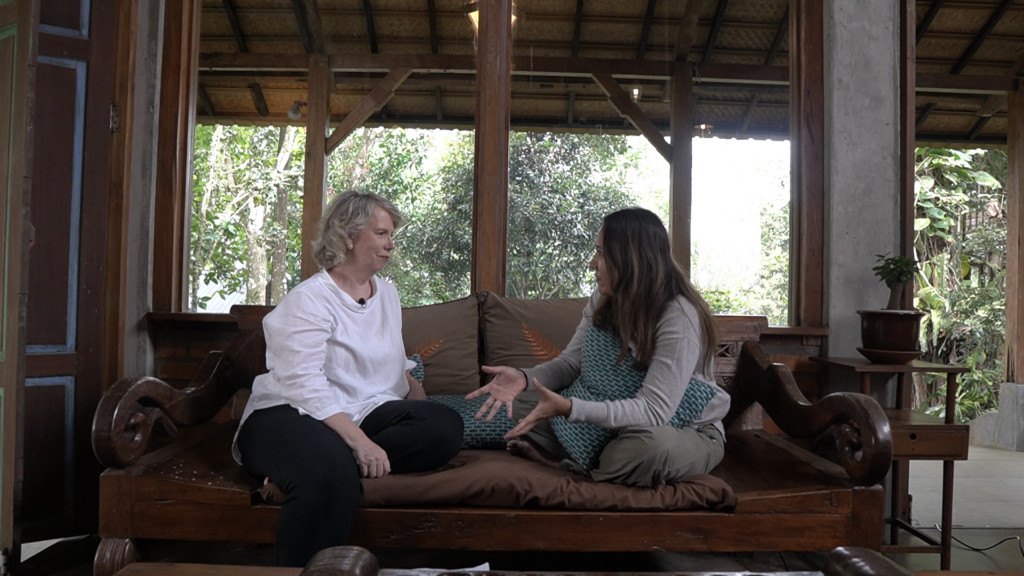
Every expat, especially trailing spouses, knows the feeling of impermanence all too well. Homes become more like temporary shelters, spaces to occupy for a few years before moving on again. I’ve seen how people around me adjust to this, learning to live with less, letting go of keepsakes, and preparing themselves for the inevitable goodbyes. It’s heart breaking to witness, but it’s a reality expat spouses live with. Just when life seems settled—when the culture shock wears off and the last box is unpacked—it’s time to uproot again.
For trailing spouses in particular, the struggle is compounded by the challenge of finding a sense of purpose. I’ve heard first hand from people who had thriving careers before moving to Indonesia, only to find themselves in a foreign land where work opportunities are limited. Many find themselves questioning their identity and value without the career that once defined them. It’s a silent struggle, one that many expat spouses endure, unsure of how to navigate their new reality.
The Search for Purpose in an Unfamiliar Land
One of the most eye-opening conversations I’ve had was with a former marketing executive who moved to Jakarta when her husband got a job here. She told me about the overwhelming sense of loss she felt. In her home country, she was a professional with a clear path ahead. But in Indonesia, her visa restricted her from working, and the language barrier made it difficult to find opportunities. Her days were filled with free time—household chores handled by a domestic helper, school runs done by a driver—leaving her with endless hours to fill, but no idea how.
It’s a common story I hear among trailing spouses. They had successful careers, ambitions, and independent lives before the move, but now they find themselves in a supporting role, with little room for their own aspirations. The isolation that comes with not working, paired with the abundance of free hours left behind by domestic helpers and drivers, creates a significant void.
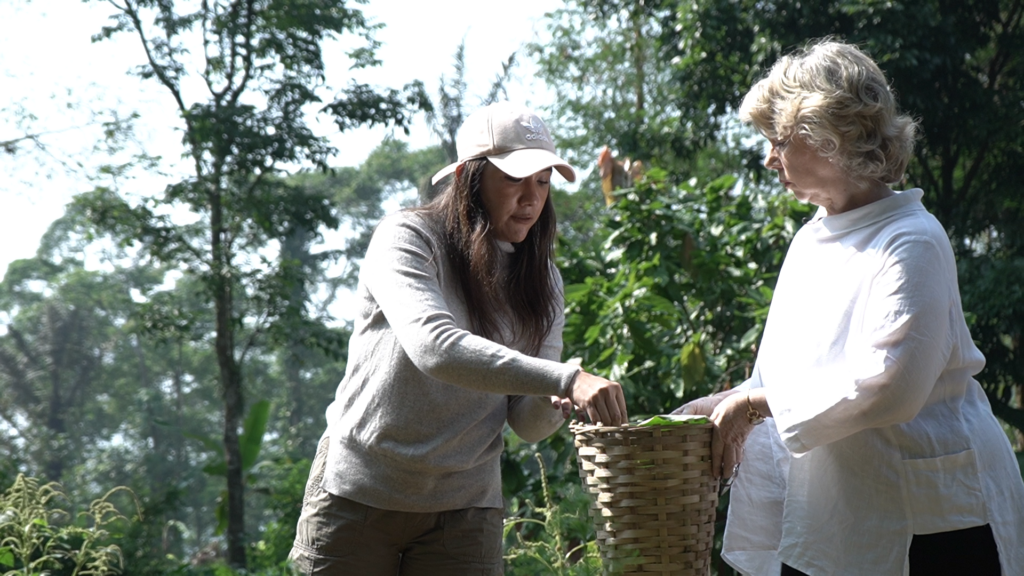
In countries like Indonesia, where hiring household staff is both affordable and culturally common, many expat families employ domestic helpers to manage the majority of day-to-day tasks. Cooking, cleaning, laundry, and even grocery shopping are often taken care of by these helpers. Additionally, drivers or school buses are responsible for getting the children to and from school, which eliminates another major part of a typical day that many spouses would have previously been involved in. As a result, much of the daily responsibilities that used to fill the hours are no longer theirs to worry about.
This sounds ideal in theory, but for many trailing spouses, it actually deepens the sense of purposelessness. Before the move, their lives were often defined by professional achievements, packed schedules, and a sense of personal accomplishment. Now, with domestic staff managing the home and children taken care of by drivers and school systems, they are left with long stretches of free time and no clear sense of how to fill it. What was once a busy, meaningful routine has been replaced by quiet, empty hours, leaving them with time to reflect on what feels like a loss of identity.
Without a professional role or domestic responsibilities to occupy their day, many spouses find themselves grappling with the quiet echo of purposelessness, unsure of how to regain the fulfilling, active life they once knew.
Admiration for Their Journey
What stands out to me most in all these stories is the incredible courage these trailing spouses display. It takes immense bravery to leave behind everything familiar and step into the unknown. The choice to follow a partner’s career, knowing that their own path will be uncertain, is not easy. Yet, these spouses push forward, refusing to be defined by the limitations of their situation.
I deeply admire their strength and resilience. Despite the challenges and the feelings of isolation, they continue to seek out purpose, forge new connections, and adapt to their environment. It’s a journey filled with ambiguity, but through their courage, they build lives filled with meaning, even in foreign lands. They remind us all that embracing uncertainty is not a sign of weakness—it’s a testament to their perseverance and inner strength.
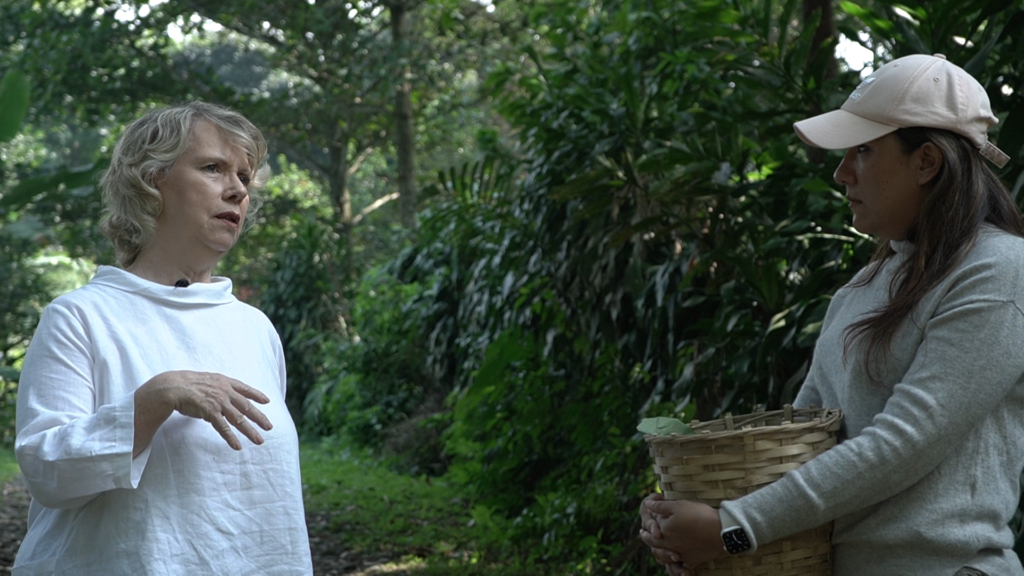
These individuals may not always know what the future holds, but their determination to find fulfilment, community, and purpose is inspiring. They prove that, even in the most unfamiliar circumstances, there is always room to grow, connect, and thrive.
The Power of Community and Connection
In many of my conversations with trailing spouses, one common thread consistently emerges: resilience. Despite the challenges and isolation that expat life can bring, many refuse to let this emptiness define them. Some pursue part-time work, freelance projects, or remote jobs that allow them to maintain their roles as mothers and supportive spouses while seeking personal fulfilment. However, for the majority, navigating Indonesia’s job market is an uphill battle. The market is highly competitive, and work permits for expats can be difficult to obtain. But what stands out is that even in the absence of traditional career paths, these spouses are not giving up—instead, they are finding creative ways to reclaim a sense of purpose.
One recurring theme I’ve noticed is the transformative power of community. Rather than allowing their struggles to overwhelm them, many trailing spouses have found strength through connection. By gathering with like-minded individuals, they share their experiences, support one another, and build communities that help fill the void left by their professional lives. It often starts with something simple—a coffee morning here, a book club there—but these small steps lead to deeper relationships and networks of friends who become their support system.
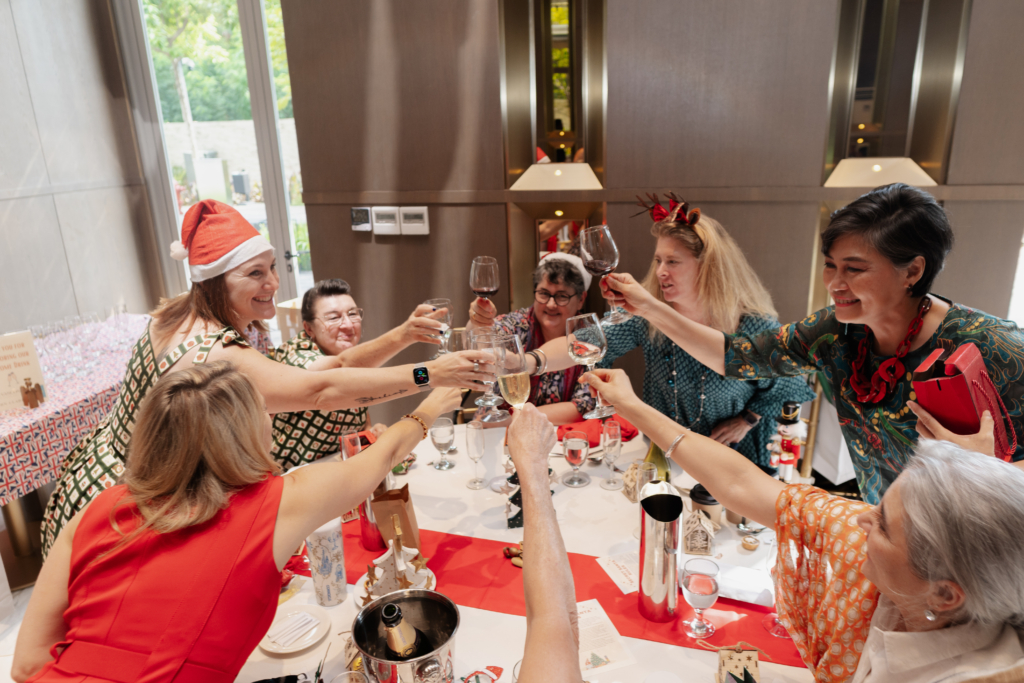
The adaptability and perseverance I’ve witnessed in these spouses are truly remarkable. They may have arrived in Indonesia feeling adrift, but by building meaningful connections and working together, they are not only filling their own personal voids—they’re enriching the lives of others in the process. This sense of community has proven to be a powerful antidote to the isolation of expat life, turning what could have been a lonely journey into an experience filled with creativity, collaboration, and purpose.
Helping Other Newcomers
One of the most inspiring stories I’ve come across involves a group of expat spouses who turned their frustrations into opportunities. Realizing that casual meetups were not enough to provide the fulfilment they craved, they decided to pool their skills and expertise to launch a small business offering cultural workshops for newcomers. What started as a modest way to pass the time quickly evolved into something much larger—a business that not only gave them a renewed sense of purpose but also contributed meaningfully to the local community by helping new expats navigate the cultural complexities of Indonesia.

This type of collaboration is something I’ve seen more and more in Jakarta. The expat community here has become a hub of creativity and support, where trailing spouses turn challenges into possibilities. Whether it’s a pop-up café run by a collective of spouses or a charity dedicated to empowering underprivileged local women, these ventures provide a way for expat spouses to reclaim their professional identities. While they may have left behind traditional careers, they are forging new paths, creating opportunities to make an impact—both within the expat community and in the local Indonesian society.
What stands out most is the ripple effect this creates. Spouses who have found their footing often turn around and offer a helping hand to those who are just arriving. This creates a beautiful cycle—those who were once lost and lonely are now the ones offering guidance, support, and friendship to newcomers facing the same challenges. Whether through volunteering, mentoring, or simply organizing social events, these acts of service foster stronger bonds among expats and a sense of belonging that transcends the initial isolation many feel upon arrival.
I’ve seen first hand how organizations like the Women’s International Club (WIC) and the British Women’s Association (BWA) have become vital in this process. These groups provide not only a platform for expats to engage with the local community but also a chance to give back through charity work. Whether it’s teaching English, hosting workshops, or supporting local causes, these initiatives allow expats to find deeper connection and purpose in their new home.

By giving back and helping others navigate the unfamiliar terrain of expat life, these spouses not only strengthen their communities but also rediscover a sense of identity and fulfilment. Through their efforts, they transform what could have been a transient, isolated experience into one of growth, connection, and meaningful contribution.

Embracing Indonesian Culture
One of the things I always encourage is embracing the local culture. Learning Bahasa Indonesia, understanding local traditions, and engaging with Indonesian society helps break down the walls that make expats feel like outsiders. I’ve met many expats who, after taking the time to learn the language or participate in cultural activities, found that it opened doors to deeper friendships and professional opportunities they hadn’t expected.
While learning a new language or adapting to a new culture can seem daunting at first, it’s often the key to truly thriving as an expat. It’s not just about surviving the move—it’s about creating a life that feels full and purposeful, no matter where you are.
A Path Forward
The stories I’ve gathered from expat spouses in Jakarta reflect a universal truth about expat life—it is hard, but it’s not impossible to find your way. The key is resilience, adaptability, and the willingness to build something new. Whether that means gathering a community of like-minded people, starting a small business, or simply volunteering to help others, there are always ways to reclaim your sense of purpose.
The journey isn’t easy, but for trailing spouses, there is a path forward. By connecting with others, embracing new opportunities, and reminding themselves of their own worth, they can turn what feels like a temporary stopover into something much more meaningful.
Creating a Home Away from Home
Through these conversations, I’ve come to realize that finding or building a community is what transforms expat life from simply enduring to truly thriving. The relationships expats form—whether through sports, volunteering, or social clubs—become their anchor in an otherwise transient world. While goodbyes are inevitable, these connections offer a sense of stability and belonging that can carry them through the uncertainties of expat life. Jakarta’s dynamic expat network is filled with opportunities to connect, grow, and build meaningful relationships, there is always a welcoming community ready to embrace you.
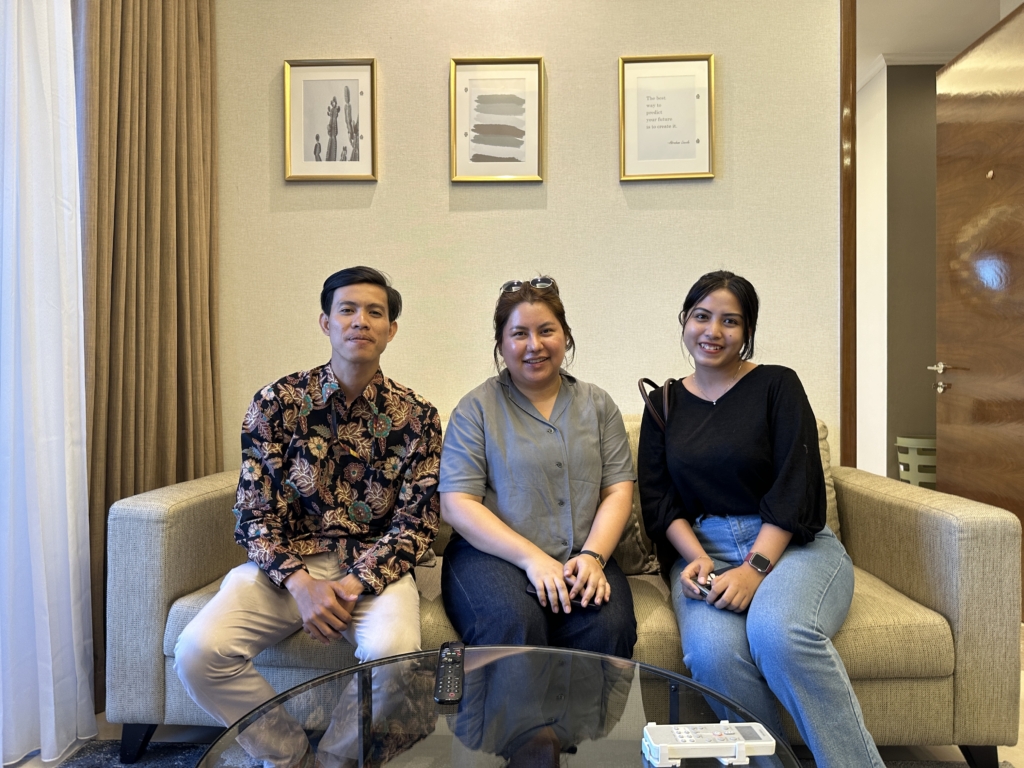
From the stories of trailing spouses I’ve encountered, it’s clear that these bonds don’t just help you settle in—they stay with you long after you’ve moved on, turning your journey into something memorable and enriching.

I hope this article has offered you some light and guidance as you navigate this unfamiliar path. May you find the friends and joy that make living abroad not just an adventure, but a deeply fulfilling experience—no matter where life leads you next.

Fahra Rizwari
Fahra Rizwari is the founder of Noble Asia, has over 20 years of experience helping international expatriates and their families settle in Indonesia. Born and raised in Indonesia but having lived abroad for many years, Fahra understands the challenges of adjusting to a new country. With her blend of local knowledge and global experience, Fahra is passionate about helping others feel at home in Indonesia, ensuring they thrive both personally and professionally in their new surroundings
